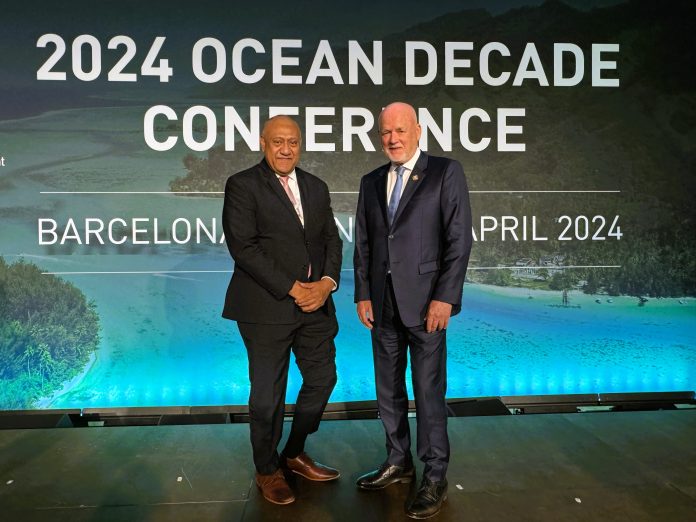A United Nations agency on Wednesday urged the international community to invest in scientific research to protect the world’s oceans which are increasingly threatened by pollution and global warming.
“We have key objectives to achieve. Much has been done for the oceans, but much remains to be done and can be done.” Audrey Azoulay, director general of the United Nation’s educational, scientific and cultural organisation UNESCO told the opening of a three-day conference in Barcelona dedicated to the protection of the oceans.
“And to do this, we must continue to invest in science” despite the global context of “crisis, wars and fragmentation of the international community,” she added.
Azoulay warned oceans were “suffocating”, with new temperature records being set regularly.
The European Union’s climate monitor Copernicus said Tuesday that average sea surface temperatures had set a new record high in March of just over 21 degrees Celsius, eclipsing the record set in February.
Oceans cover 70 percent of the planet and have kept the Earth’s surface liveable by absorbing 90 percent of the excess heat produced by carbon pollution from human activity since the dawn of the industrial age.
Hotter oceans mean more moisture in the atmosphere, leading to increasingly erratic weather, like fierce winds and powerful rain.
“Some may think that our century is experiencing more serious, more urgent and more profound crises than those affecting the ocean ecosystem, but what brings us together here today is crucial for our future,” said Monaco’s Prince Albert II.
Around 1,500 scientists and representatives of governments and environmental organisations are taking part on the Ocean Decade conference in Barcelona which is organised by the UN.
The gathering aims to encourage scientific research to tackle the threats to the oceans, from global warming to plastic pollution.
After 15 years of talks, UN member states last year adopted a treaty to protect the world’s oceans and reverse the damage done to fragile marine environments by pollution, overfishing and other human activities.
In the Pacific, the Ocean Commissioner Dr Filimon Manoni joined world leaders, dignitaries and ocean scientists including Pacific Islands Forum Chair Cook Islands Prime Minister Mark Brown and Ambassador Peter Thompson, UNSG’s Special Envoy on Ocean at the inaugural UN Ocean Decade to advocate about the importance of Ocean Science and the valuable aspects of traditional knowledge in these discussions.
“As the Pacific Ocean Commissioner, a servant of the custodians of nearly 20 percent of the earth’s surface, I am privileged to stand before you and address this esteemed gathering. Having journeyed more than 12,000 kilometers from my new Office in Palau to Barcelona, I have been pondering of the message that the world will need to hear about the region we come from” said Dr Manoni.
“For the Pacific, the ocean has been more than just a vast expanse of water. It is fused with our culture, our identity, and our very existence. For generations, our people have relied on the ocean for sustenance, livelihoods, and spiritual nourishment. In our pursuit of sustainable development, we recognize that our ocean’s health is paramount, and thus, our decision-making must be underpinned by the best available science and deeply rooted in traditional knowledge.
Internationally, we have championed the recognition of traditional knowledge for our oceans at the highest levels, advocating for its inclusion in critical frameworks such as the BBNJ and the Global Biodiversity Framework.”
Dr Filimon Manoni and his team from OPOC are on the ground in Barcelona for the duration of the conference to have discussions, coordinate with relevant ocean organisations and advocate the Pacific’s unique context as mandated by the Pacific Island Forum Leaders.













